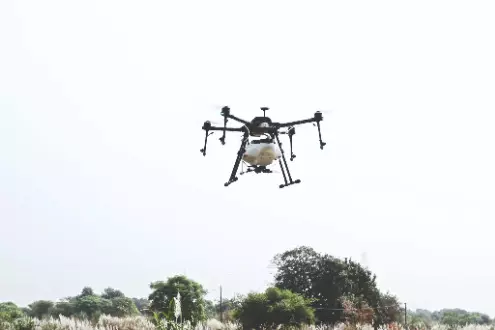Delhi Mayor unveils drone-based insecticide drive in flood-hit zone

NEW DELHI: In a bid to contain the growing threat of vector-borne diseases in flood-affected areas of the city, Mayor Rajaiqbal Singh on Thursday flagged off a drone-based insecticide spraying initiative. The launch, attended by senior Municipal Corporation of Delhi (MCD) officials, marks the civic body’s first large-scale deployment of drones for mosquito control in waterlogged neighbourhoods.
The initiative comes at a time when prolonged water stagnation has heightened the risk of dengue, malaria, and chikungunya. Traditional fogging machines and manual spraying have often proved ineffective in submerged lanes and densely packed settlements. Drones, equipped with GPS mapping and high-capacity sprayers, will now be able to target such pockets with precision.
“Protecting public health in flood-hit areas requires speed and efficiency. By using drones, we are not only improving coverage but also ensuring the safety of our sanitation staff, who otherwise struggle to access waterlogged streets,” the Mayor said during the launch. He also appealed to residents to assist the drive by reporting areas of water logging and by maintaining cleanliness in their surroundings.
Senior MCD officials explained that the drones are programmed to disperse government-approved insecticides in controlled quantities, ensuring that the spraying is both effective against mosquito breeding and safe for human habitation. Teams have been tasked with monitoring operations and reviewing results daily. The introduction of this technology mirrors a wider urban health trend, with civic agencies in cities like Mumbai and Bengaluru also experimenting with drones for pest control. In Delhi, the need has been especially pressing, as recent heavy rains left large sections of low-lying colonies inundated for days. Residents welcomed the move, describing it as a timely measure to prevent disease outbreaks.
By integrating new technology into civic response, the MCD hopes not only to curb immediate health risks but also to build resilience in managing future emergencies. The pilot programme, officials indicated, may soon be scaled up.



